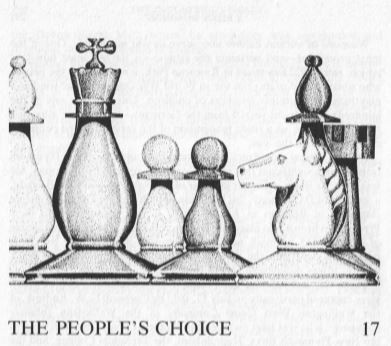17
Governor Gipps (who ruled New Zealand from Sydney between 1839 and 1840): 'Absent'. Governor Hobson (1840-1842): 'The invalid'. Acting Governor Shortland (1842-1843): 'Incompetent'. Governor FitzRoy (1843-1845): 'Without troops, without money, with- out discretion'. Governor Grey (first term 1845-1853): 'Energetic but deceitful'. This was the opinion of the outspoken editor of the Taranaki Herald, Garland Woon, I of the first five men appointed to govern New Zealand as personal representatives of the British monarch. It is a somewhat uncharitable view shared by many historians; but the difficulties faced were enormous and, as they' governed from a distance' perhaps not fully understood in the backwater of New Plymouth. Their first task had been to establish a stable administration, made doubly difficult by financial restrictions and unsettled relations between Maori and pakeha. In the beginning the country was divided into three provinces-New Ulster (the North Island), New Munster (the South Island) and New Leinster (Stewart Island). In 1846 New Leinster was merged with New Munster, the northern boundary ofwhich extended up to an east-west line from the mouth of the Pate a River. The 1852 New Zealand Constitution Acts of Westminster, abolished the two provinces and substituted six (at Grey's institution), of which New Plymouth (renamed Taranaki in 1858) was the smallest, and which itself was divided into three districts: Omata, Grey and Bell and New Plymouth.
Taranaki's first electoral roll, published in May 1852 showed that there were 105 voters in the town of New Plymouth and 175 in the Taranaki Country Districts. Voters' qualifications were: 'A freehold estate valued at £50 ($100) above all charges and encumbrances, the owner being of the male sex and over 21 years of age'; or being 'a householder occupying a tenement within the limits of a town of a clear annual value of £5 ($10) and having resided therein six calendar months before registration. At the first session of the General Assembly at Auckland on May 27 1854, Major J. Y. Lloyd represented Taranaki in the Legislative Council, and those in the House of Representatives were Wm M. Crompton for Omata, T. King for Grey and Bell, and f. U. Gledhill for New Plymouth. Gledhill, who owned a general store in Devon Street was defeated the following year by C. W. Richmond, but he won the seat for Omata in 1865. He was a member of the Provincial Council until that body was abolished in 1876. Christopher William Richmond, MHR for seven years, was a member of one of New Plymouth's most distinguished families. One of three brothers, his political and administrative abilities soon found avour with the Stafford administration. He became Colonial Secretary in 1865; Colonial Treasurer in the following year, and Minister for Native Affairs in 1858, a post for which he was particularly suited, as it was his concern over the frustration of the Taranaki settlers disturbed by inter-racial warfare over land sales which had prompted him to enter the political arena. However, he found the political bickering and the perpetual jostling for influence in the corridors of power distasteful. In July 1861 a parliamentary select committee justly exonerated him from a loosely- worded charge by Dr Isaac Featherston, that he (Richmond) as a member of the executive, had exerted improper influence in regard to the purchase of land in Taranaki. Featherston, then Colonial Secretary, held the view (in common with many colonists) that the Maoris, as a race, were doomed to extinction, and that the most Europeans could do would do be to 'smooth down their dying pillow'
He supported William Fox's 'peace at any price' policy, as against Richmond's endorsement of the Government's war policy. It was tactics such as these which no doubt led to Richmond resigning his Cabinet post and his New Plymouth seat in 1862 to take up a legal practice in Dunedin. He was made a Judge of the Otago circuit in that year, and later turned down tempting lures from Stafford to return to politics, the premiership being offered him if he so wished. He died in Wellington on August 3, 1895. I. N. Watt (1862-1863) and H. Turton (1863-64) were next holders of the New Plymouth seat, and in 1864, Charles Brown, who had been Taranaki's first Superintendent and who had represented Grey and Bell districts on two occasions, was elected to the New Plymouth seat. The first Premier of New Zealand, Henry Sewell, who held that post for a fortnight in 1856, held the New Plymouth seat for one session in 1865, his final term in the House after a long and distinguished parliamentary career. John Larkin Cheese Richardson, of Otago, represented Dunedin in the House of Representatives from 1862 until his defeat in 1866, when the Government gave him the Taranaki seat which he held for one year. He was elevated to Speaker of the Legislative Assembly in 1868. Harry Albert Atkinson's first task on arriving in New Plymouth, aged 19, was to assist his relatives in developing their 400ha of farmland on which they built the family home, Hurworth (named after his father's home in Durham) on Carrington Road. He began his long parliamentary career when he was elected unopposed to Grey and Bell in 1861 and he held the New Plymouth seat in 1866. He joined the Vogel ministry, gradually assuming charge of the government and in 1876 he became prime minister, a post he held for five terms, during the last of which, in 1889, he held eight portfolios. Atkinson was an outstanding man in many ways: he classed himself as a man of the land, a yeoman; others called him a conservative, one of the last of the landed oligarchy to hold political power in New Zealand." It was Atkinson who, in 1875, pushed through the Bill abolishing the provinces. His ministry was defeated in the 1891 elections, and he died in Parliament Buildings on June 28, 1892, at the start of the new parliamentary session.
